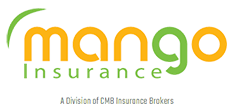NAICS CANADA CODE:
541212 Offices of accountants
541213 Tax preparation services
541215 Bookkeeping, payroll and related services
Description of Operations:
Accountants handle the financial compilation, auditing, bookkeeping, and preparation of financial statements and taxes. This service is provided to either the general public or to a specific firm or group of client firms. The accounting operation may provide general or all-encompassing services, or specialize in a specific area such as taxes, real estate, or investments.
An accounting firm may or may not carry the Certified Public Accountant (CPA) certification. The need for the CPA certification depends on the type of work the accountant will provide and the purpose or type of financial statements the accountant will prepare for the client. In those cases where a CPA is specifically needed, the accountant must have knowledge and experience in working with generally accepted accounting principles (GAAP). Often, the financial work done for the client needs verification that the research, review and content of the statements meet specific acceptable accounting procedures — this verification can come only from a CPA.
Some accountants may also act as financial planners and offer investment advice. Due to the varied areas of knowledge or expertise needed by an accountant, the background, education, certification, experience and professionalism of the accountant are items to consider.
Professional liability and errors and omissions coverage are items to review. Additional items include inland marine coverage for valuable papers, accounts receivable, and customers’ records, as well as computer coverage.
Property exposure is primarily an office exposure. There may be considerable storage of customers’ records, which significantly adds to a fire load. Storage should be in fireproof file cabinets, and fire suppression systems must not damage the papers.
Inland marine exposures are Accounts Receivable, Computers and Valuable Papers. Where are the valuable papers stored? How are they documented? Where are the duplicates? Is there a computer record?
Crime exposure comes from Employee Dishonesty including customers’ property. Methods and procedures must be in place to prevent employees from gaining access to customers’ property and taking it. Accountants have access to customers’ bank accounts and records, which can be used by employees. Background screening is vital, along with monitoring procedures and securing of all records to keep access limited.
Occupiers’ liability is limited. Customers must be kept in customer waiting areas and designated conference areas. All areas must be well maintained with floor covering in good condition.
Professional liability exposure is extensive. What services does the applicant provide? What are the firm’s credentials? How many employees are professional? Are clericals allowed to do tasks that only the professionals should handle? Are files regularly monitored to check for errors, and are employee evaluations conducted? Are these documented? Are there thorough background checks to verify credentials and education?
Automobile liability exposure depends on services performed. The primary exposure is Hired and Non-Owned. If vehicles are supplied for use, what are the rules regarding personal use? All drivers must have valid licences.
Workplace safety exposure is that of an office exposure. Due to the extensive use of computers, all workstations must be ergonomically designed to prevent repetitive motion injuries. Do employees work off site? What controls are in place?
Minimum recommended insurance coverage for Accountants Insurance:
Business Personal Property, Dishonesty, Disappearance and Destruction, Accounts Receivable, Computers, Valuable Papers, General Liability, Professional Coverage, Umbrella, Non-owned Automobile
Other Insurance coverages to consider for Accountants Insurance:
Computer Fraud, Employment Practices Liability, Directors and Officers Liability

